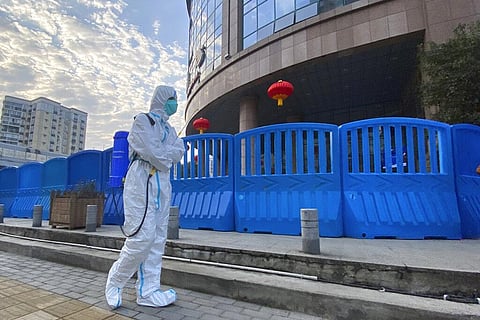

"Keep your enthusiasm, but let strict verification be its constant companion" This was Louis Pasteur's wise counsel to his young research fellows. It embodies the core philosophical tenets of science: curiosity to seek new knowledge or test old assumptions and dogmas; exploration along that path with a vision unclouded by bias; meticulous investigation to unravel facts with accuracy and precision; objective analysis of assembled data; honest reporting of results; and an insightful discussion of the implications of the findings for the field of study and, where relevant, for policies that impact wider society.
Constructed on these foundations, science also calls for a readiness to change one’s prior beliefs and adopt new positions in light of new evidence that is credible and provides new perspectives. While science calls for healthy skepticism when testing a new hypothesis, it also calls for a ready embrace of new knowledge that has emerged from the crucible of rigorous investigation and stood the test of critical appraisal by expert peers.
While science is not infallible, these philosophical tenets of science endow it with the strength of self-correction. That strength has been called for duty recently, in reacting to the controversy surrounding the origins of the Sars-CoV-2 virus. The prior assumption that the virus travelled from bats in the forests of Wuhan to humans, possibly through an intermediate host animal like the pangolin, has been forcefully challenged by a series of revelations in global media about the happenings in the Wuhan Institute of Virology (WIV). The 'lab leak' hypothesis, hitherto dismissed as a crazy conspiracy theory, suddenly looks plausible.
It now appears that miners who were employed to dig mounds of bat excreta in caves outside Wuhan for research purposes in WIV had developed pneumonia similar to Sars. Then lab workers in WIV fell ill with respiratory illnesses resembling COVID-19. All of these events preceded the public acknowledgement of cases occurring in the general population of Wuhan in late December 2019. Much of this information has been unearthed by a global coalition of amateur internet sleuths, who go by the collective name DRASTIC. Interestingly, a key contributor to this effort is a young science teacher from Bengal.
It has also been revealed that WIV was involved in 'gain of function' research with coronaviruses. This involves modifying wild viruses isolated from bats and other forest animals to see whether their infectivity or virulence can be increased. The ostensible reason for such dangerous research is to explore what might happen because of future mutations in a wild virus. A hidden motive, of developing biological weapons for warfare, cannot be fully ruled out.
A secret that has spilled out, in the massive unearthing of hidden documents, is that WIV in China has been receiving funding from the US government’s federal research agencies. Those grants were routed through a global non-government organisation called Eco-Health Alliance. This group's mission is to promote research into the dynamics of zoonotic transmission of microbes from animals to help anticipate and prevent future pandemics. While that is laudable, funding of dangerous ‘gain of function’ research deserves condemnation.
It is apparent from recently revealed documents, which include emails of Dr Anthony Fauci, that several senior US government officials were aware of the ‘gain of function’ research at WIV and its funding route. Some officials even made active attempts to stop enquiries related to this research. What were they trying to hide? An accidental 'lab leak' of an engineered virus cannot be ruled out on the basis of recent evidence. A deliberate release into the general population is extremely unlikely.
The zoonotic origin of the infection should be still regarded as real, judging by the initial sickness of the miners exposed to bat excreta. However, what happened to the bat coronavirus after it arrived in the laboratory still needs to be investigated.
Deliberate modification of natural microbes to enhance their dangerous traits is clearly unethical and deviates from the moral moorings of science.
This is not the first time that the strength of science has been misdirected to design dangerous products. Nuclear weapons are a clear example. Several technological products of sound science have led to climate change, environmental pollution, chronic diseases and weapons of mass destruction. Some of them, like chlorofluorocarbons, leaded petrol and ultra-processed foods may not have revealed their potential for harm when first invented, but the danger of engineering viruses for greater harm should have been obvious to anyone, other than wannabe Frankensteins and militaristic minds with ambitions of global domination.
That raises the question of who should be the watchdogs of research, so that misdirected scientific curiosity and blinkered pursuit of projects for bioengineering pathogens does not lead to calamitous consequences. The public must be the judge of whether such research should ever be permitted, not just researchers who do not see beyond their nose. Society must judge what is safe, not just the scientists.
To those who doubt the ability of common people to understand the complexities of science vis a vis public policy, these sage words of Thomas Jefferson should show the light: “I know of no safe depository of the ultimate power of society than the people themselves, and if we think them not enlightened enough to exercise that control with a wholesome discretion, the remedy is not to take it from them, but to inform their discretion.”
(Views are personal)
(The writer is a cardiologist, epidemiologist and President, Public Health Foundation of India. He can be reached at ksrinath.reddy@phfi.org)